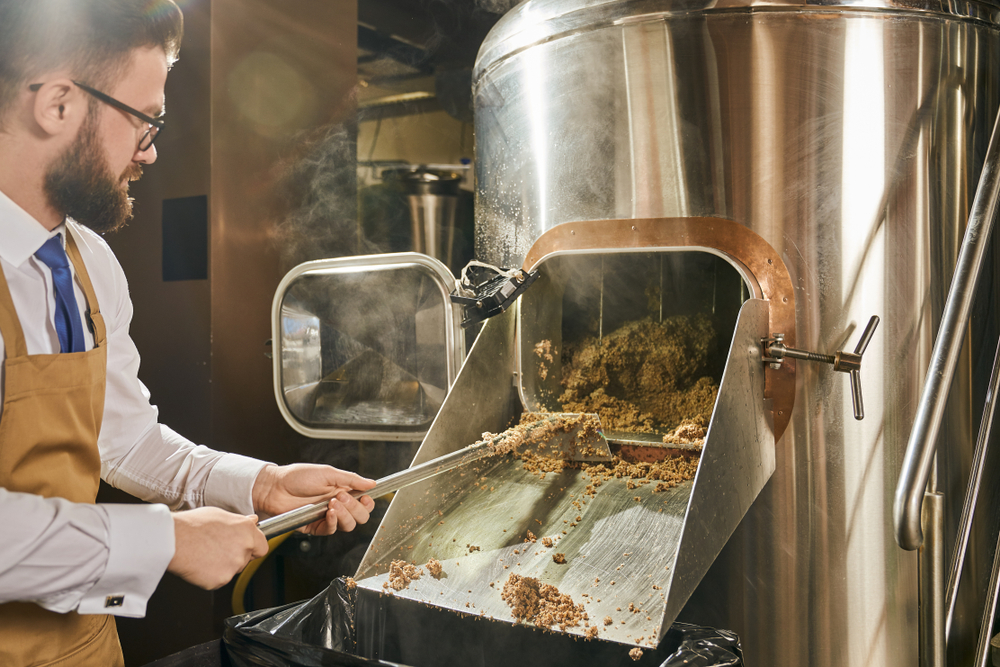If it were up to Hermien van Bokhorst-van de Veen and her colleagues at Wageningen Food & Biobased Research, part of beer production’s residual products would be enriched with vitamin B12 to upgrade it.
‘Some six to eight million tonnes of spent brewer’s grain is produced in Europe each year in the beer production sector. This residual product is currently used as animal feed. The fact that it is not discarded or incinerated is a plus, but it would be even better if this residual stream from a product specifically produced for human consumption could be processed into something valuable that is also suited for human consumption’, Van Bokhorst argues.
Non-animal source
One of the nutrients each human being needs is vitamin B12. ‘This vitamin plays an essential role in producing, among other things, haemoglobin, which transports oxygen to our cells. Moreover, this vitamin is critical to the functioning of our nervous system.’ Vitamin B12 occurs naturally in meat, fish, eggs and dairy products, or rather, in animal products. ‘With an increasing number of vegetarians, the ability to extract vitamin B12 from other sources is becoming more important. Spent grain could be such a source’, Van Bokhorst states.
‘Our project started with literature studies, after which we tested the concept on a small scale and, later, more extensively’, the researcher says. Propionibacterium freudenreichii and Priestia megaterium bacteria were the chosen bacteria. ‘According to the literature we consulted, these bacteria could produce vitamin B12 from plant-based materials through the process of fermentation. Studies on spent grain had not yet been conducted.’
Fermentation
‘The product was delivered in the form of a thick, green paste. We diluted it to make it easier to process and went on to apply what we had learned in our literature study about optimal fermentation conditions. Consider, for example, temperature and acidity,’ Van Bokhorst clarifies. ‘Moreover, the propionibacterium appeared to do better than Priestia megaterium.’

Initially, the process yielded approximately 0.5 to 1 microgramme of vitamin B12 per 100 grammes of spent grain. ‘A fine start, but health recommendations call for a daily intake of 2.5 microgrammes of B12. That would require the consumption of copious amounts of enriched brewer’s grain to meet that requirement if no animal products are consumed. So, we wanted to produce a higher concentration of the vitamin.’ Fortunately, the scientists were able to make a few adjustments. ‘We decided to cut back the dilution of the spent grain, using a thick paste instead of a slurry. We also optimised the incubation time, oxygen availability, and temperature. In a lab setting, using small amounts, we managed to achieve over twenty microgrammes per 100 grammes of spent grain.’
Baked bread
‘Finally, we also tested extensively in a 12-kilo fermenter. After all, millions of tonnes of brewer’s grain are produced each year, making data from just a small-scale lab experiment insufficient.’ They managed to achieve a result of well over seven microgrammes of B12 per 100 grammes. ‘A great point of departure for our industry partner who delivered us the spent grain to take over and scale up production. The enriched product can be used to bake bread, for example. A chef has already done so using the products from our fermenter test.’

 Brewer’s grains are a residual product in beer production. Photo Shutterstock
Brewer’s grains are a residual product in beer production. Photo Shutterstock